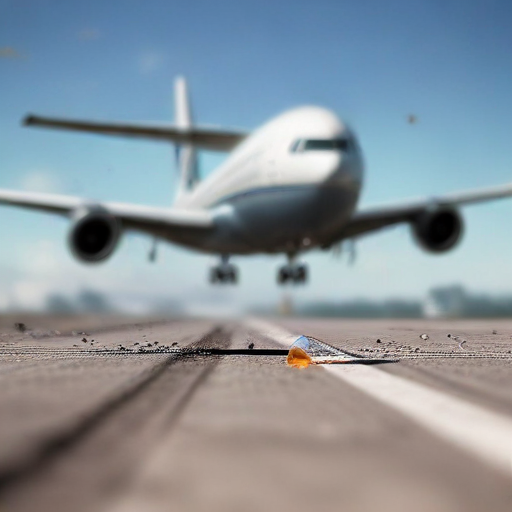A Spirit Airlines flight from Florida encountered gunfire while attempting to land at Toussaint Louverture International Airport in Port-au-Prince, Haiti, on Monday, prompting the aircraft to safely divert to the Dominican Republic. According to the Federal Aviation Administration (FAA), one flight attendant suffered minor injuries during this alarming incident.
The flight, Spirit Airlines Flight 951, had taken off from Fort Lauderdale-Hollywood International Airport, bound for Haiti. As the Airbus A320 flew over a neighborhood at around 550 feet, it experienced gunfire and quickly climbed to divert to Cibao International Airport in Santiago, Dominican Republic, where it landed safely. Video footage shared online depicted a bullet hole inside the plane, as well as visible damage to the fuselage.
In response to the threat, two other flights destined for Port-au-Prince were diverted, and the airport was subsequently closed. The U.S. Embassy in Haiti issued a security alert, warning travelers about the ongoing risks posed by armed violence, notably in light of “gang-led efforts” disrupting transportation routes to and from the capital.
Robert Sumwalt, a transportation safety expert and former chairman of the National Transportation Safety Board, praised the decision to divert the flight, highlighting the importance of awareness regarding potential dangers in politically unstable regions.
In light of this incident, Spirit Airlines has suspended service to both Port-au-Prince and Cap-Haïtien while assessing the situation. JetBlue and American Airlines have also decided to halt flights to Haiti, with JetBlue reporting that a separate flight had also been struck by gunfire yet managed to land safely at JFK Airport in New York.
Despite the unsettling nature of the incident, it is a testament to the resilience and professionalism of airlines and safety authorities when faced with unexpected threats. The swift actions taken ensured the safety of passengers and crew, and airlines are now taking steps to evaluate their operations in regions of unrest comprehensively. This proactive approach aims to guarantee safety while still maintaining commitments where possible in the challenging environment.
Overall, the situation emphasizes the need for enhanced attention to security measures in travel destinations affected by violence, reminding the aviation industry of the unpredictable nature of such environments. As travelers and airlines navigate these complexities, their safety remains the top priority, fostering hope that greater stability will one day return to regions like Haiti.
